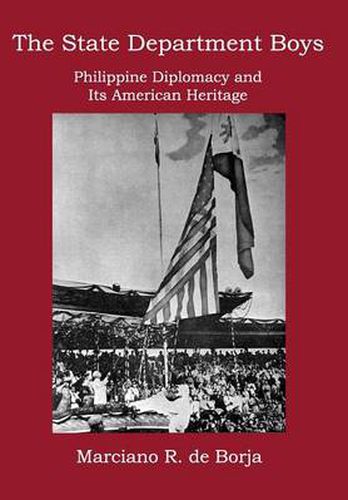Readings Newsletter
Become a Readings Member to make your shopping experience even easier.
Sign in or sign up for free!
You’re not far away from qualifying for FREE standard shipping within Australia
You’ve qualified for FREE standard shipping within Australia
The cart is loading…






This title is printed to order. This book may have been self-published. If so, we cannot guarantee the quality of the content. In the main most books will have gone through the editing process however some may not. We therefore suggest that you be aware of this before ordering this book. If in doubt check either the author or publisher’s details as we are unable to accept any returns unless they are faulty. Please contact us if you have any questions.
The book relates the untold story of the efforts of the U.S. Department of State and selected U.S. Foreign Service posts to train the first Filipino career diplomats before and after Philippine independence in July 1946. These trainees eventually formed the core of the Philippine Foreign Service. In the Philippines, they are fondly and collectively called the State Department Boys. Some of these pioneer diplomats rose to prominence, becoming distinguished ambassadors to major countries and permanent representatives to the United Nations. Others led less brilliant careers. A few left the Foreign Service shortly after joining. All of them have already passed away - the last surviving member of the group died in 2009 at the age of 93. The book also discusses Philippine-American relations in the wake of Philippine independence, in particular the efforts of the United States to ensure the smooth transition of the Philippines from a colony to an independent state and to enable it to conduct its foreign relations by setting up its Foreign Service and developing a core of professional diplomats. The research is based mainly on primary materials - declassified State Department records at the National Archives and Records Administration in College Park, Maryland, personal documents, correspondence, and pictures from the Edward W. Mill Collection at the Bentley Historical Library. In addition, the author conducted research in leading libraries and archives in the Philippines and interviewed relatives and friends of the State Department Boys, some of whom shared newspaper clippings, pictures, and other materials for this book.
$9.00 standard shipping within Australia
FREE standard shipping within Australia for orders over $100.00
Express & International shipping calculated at checkout
This title is printed to order. This book may have been self-published. If so, we cannot guarantee the quality of the content. In the main most books will have gone through the editing process however some may not. We therefore suggest that you be aware of this before ordering this book. If in doubt check either the author or publisher’s details as we are unable to accept any returns unless they are faulty. Please contact us if you have any questions.
The book relates the untold story of the efforts of the U.S. Department of State and selected U.S. Foreign Service posts to train the first Filipino career diplomats before and after Philippine independence in July 1946. These trainees eventually formed the core of the Philippine Foreign Service. In the Philippines, they are fondly and collectively called the State Department Boys. Some of these pioneer diplomats rose to prominence, becoming distinguished ambassadors to major countries and permanent representatives to the United Nations. Others led less brilliant careers. A few left the Foreign Service shortly after joining. All of them have already passed away - the last surviving member of the group died in 2009 at the age of 93. The book also discusses Philippine-American relations in the wake of Philippine independence, in particular the efforts of the United States to ensure the smooth transition of the Philippines from a colony to an independent state and to enable it to conduct its foreign relations by setting up its Foreign Service and developing a core of professional diplomats. The research is based mainly on primary materials - declassified State Department records at the National Archives and Records Administration in College Park, Maryland, personal documents, correspondence, and pictures from the Edward W. Mill Collection at the Bentley Historical Library. In addition, the author conducted research in leading libraries and archives in the Philippines and interviewed relatives and friends of the State Department Boys, some of whom shared newspaper clippings, pictures, and other materials for this book.